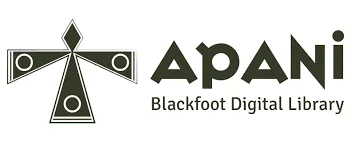Indigenous Inclusivity Teaching Resources
Improving Indigenous Student Experiences and Outcomes
Thank you to David Logue for supplying this resource
Blackfoot and First Nations Metis Inuit Protocol Handbook
Approved: October 7, 2013 General Faculties Council
(June 12, 2013 Aboriginal Education Committee)
Iikaisskini Indigenous Services
University Hall | Sixth floor
Section E | Room E610
Open Monday to Friday from 8:30 a.m. to 4:30 p.m. Closed weekends and holidays.
IN-Practice: Indigenous Scholars Circle of Teaching and Learning
Established on May 25, 2023, IN-Practice is a Circle of Teaching and Learning for Indigenous scholars. The Circle strives to transform teaching practices and enhance educational experiences in all disciplines through the inclusion of Indigenous knowledges, pedagogies and epistemologies.
As the first Indigenous Circle of Teaching and Learning, IN-Practice is committed to nurturing a collaborative community where Indigenous scholars support each other in developing and refining pedagogical and methodological approaches for the inclusion of Indigenous knowledge in teaching and learning practices. By focusing on the unique perspectives and experiences of Indigenous scholars, we aim to decolonize, Indigenize and transform the University of Lethbridge and promote an inclusive educational experience for all.
IN-Practice brings together a diverse and interdisciplinary cohort of Indigenous scholars who meet monthly to explore innovative teaching pedagogies and methodologies rooted in Indigenous ways of knowing and learning. These circles foster community, meaningful discussions, and the sharing of classroom practices that enhance learning and teaching.
If you are an Indigenous scholar interested in joining IN-Practice please contact Diana Letts.
Territorial (Awahsinii) Acknowledgement Statements
(Updated Feb 2022)
It is anticipated that individuals at the University will open each University meeting and gathering with an acknowledgement of the Blackfoot Confederacy territory. Further, individuals may, at their discretion, use either the long or short statement for opening remarks in University gatherings. These statements are presented as examples to use in acknowledging the Blackfoot people and their territory.
Oki, and welcome to the University of Lethbridge. Our University’s Blackfoot name is Iniskim, meaning Sacred Buffalo Stone. The University of Lethbridge acknowledges and deeply appreciates the Siksikaitsitapii peoples’ connection to their traditional territory. We, as people living and benefiting from Blackfoot Confederacy traditional territory, honour the traditions of people who have cared for this land since time immemorial. We recognize the diverse population of Indigenous Peoples who attend the University of Lethbridge and the contributions these Indigenous Peoples have made in shaping and strengthening the University community in the past, present, and in the future.
Oki, and welcome to the University of Lethbridge. Our University’s Blackfoot name is Iniskim, meaning Sacred Buffalo Stone. The University is located in traditional Blackfoot Confederacy territory. We honour the Blackfoot people and their traditional ways of knowing in caring for this land, as well as all IndigenousPeoples who have helped shape and continue to strengthen our University community.
Oki, and welcome to the University of Lethbridge. Our University’s Blackfoot name is Iniskim, meaning Sacred Buffalo Stone. The University of Lethbridge is located on the Bow Valley College Campus located in traditional Niitsitapi territory in the City of Calgary. We honour the Blackfoot people and their traditional ways of knowing in caring for this land, as well as all IndigenousPeoples who have helped shape and continue to strengthen our University community.
* Siksikaitsitapii (Sik-si-kay –tsida-be) is Blackfoot for Blackfoot Confederacy
** Blackfoot Confederacy comprises the Kainai, Piikani, Amskapiipikani, and Siksika First Nations
*** Niitsitapi is Blackfoot for “Blackfoot-speaking real people”
**** Blackfoot Elder Bruce Wolf Child named the University of Lethbridge “Iniskim”


Other Reading
CAUT Guide to Acknowledging Traditional Territory
Who's Land is it Anyway? A manual for Decolonization - Peter McFarlane and Nicole Schabus
Indigenous History Month Reading List by Massey Books
100 Ways: Indigenizing & Decolonizing Academic Programs by Shauneen Pete University of Regina
How Teachers Teach in Their Classrooms by: André Rebeiz, EdCan Network
Links
Mootookakio'ssin aims to virtually reconnect Blackfoot items in museums with Blackfoot people and assist in the process of knowledge renewal and transmission that occurs within the tribes. Part of the Blackfoot Digital Library.
Courses and Learning
Indigenous Canada, a Massive Open Online Course from the University of Alberta
First Peoples Principles of Learning
Because the First Peoples’ Principles of Learning represent an attempt to identify common elements in the varied teaching and learning approaches that prevail within particular First Nations societies, it must be recognized that they do not capture the full reality of the approach used in any single First Peoples’ society.
When making connections with the local First Nations community, teachers (or students) may therefore find it helpful to investigate how pedagogy is articulated and practised within that community.
This investigation is likely to happen incrementally over time, as the pedagogical approach articulated and practised within the local communities will not necessarily be set out in an easy-to-summarize form. Ultimately, one important conclusion for students to draw is that pedagogy in First Nations societies is both dynamic and culturally specific (i.e., grounded in a distinctive language and way of looking at the world). Download the PDF
BC Campus Indigenization Guides (Reading)
Pulling Together: A guide for Indigenization of post-secondary institutions. A professional learning Series.
Authors:Bruce Allan, Amy Perreault, John Chenoweth, Dianne Biin, Sharon Hobenshield, Todd Ormiston, Shirley Anne Hardman, Louise Lacerte, Lucas Wright, and Justin Wilson
Pulling Together: A guide for Leaders and Administrators. A professional learning series.
Sybil Harrison, Janice Simcoe, Dawn Smith, and Jennifer Stein
Pulling Together: A Guide for Front-Line Staff, Student Services, and Advisors
Ian Cull, Robert L. A. Hancock, Stephanie McKeown, Michelle Pidgeon, and Adrienne Vedan
Pulling Together: Foundations Guide

